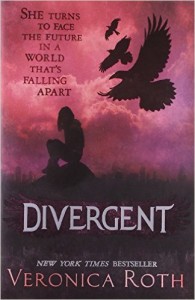For people of a ‘certain age’ (myself included), there may be fond memories attached to school years, especially being assigned to a special school house – very handy for Sports Days, in which we competed against fellow classmates to secure a win for our school house and earn a chance to gain some precious popularity.
Remember also, the time in that final year of school when the Careers Officer would make an appearance and suggestions as to your future job.
Now imagine a scenario whereby your school house not only meant how many points you got in the Sports Day egg and spoon race, but actually dictated your entire life from birth to death; ranging from everything you owned, your style of clothing and the type of foods you were allowed to eat, along with your politics, your social behaviour, your friends, your career path, the types of housing you could inhabit, and even how you were allowed to decorate such dwellings.
At the age of sixteen, instead of a Careers Officer, you would be sent for an intense bout of psychometric testing, which would determine which house, or ‘faction’, you should become a part of during adult life.
Herein lies the conceptual basis of Veronica Roth’s 2011 debut novel, Divergent – the first in a series of three books based on the characters within post-apocalyptic Chicago, along with a series of five short stories based on characters from the book. It is also the source of a 2014 movie.
The story, told from a first-person perspective, is seen through the eyes of Beatrice Prior – a sixteen-year-old girl. The opening pages focus on her mental turmoil as she faces the challenges of the tests to find her ideal faction, along with her inner thoughts on how she personally wishes to spend the rest of her life.
Beatrice’s family all consist of members of the faction known as ‘Abnegation’ – a selfless group of people whose sole purpose is to devote their whole lives to the welfare of others, via kindness, compassion and service. As such, Beatrice has only known the values of her own faction, including dressing in shades of grey so as to not stand out in a crowd and draw any attention to the self, not to focus upon learning or education, but simply to find ways to serve others. All politicians are from this faction, as they are believed to be incorruptible.
At the ‘Choosing Ceremony’, Beatrice would be expected to fall in line with the wishes of her parents, although the choice is hers.
Therefore, within the very early stages of the book, we reach the first dramatic conflicts – will Beatrice stay true to her upbringing and serve the people of Chicago, or will she choose another role in life? – thereby disconnecting herself from her family, forever.
There are five main factions in this dystopian, future Chicago. Alongside Abnegation, there is ‘Erudite’ (The Intelligent) – people who live only for knowledge and education. At the Punk rocker edge of the factions are ‘Dauntless’ (The Brave) – people who would not look out of place in a ‘Mad Max’ movie and act as the security and bravado of the city. Beatrice’s other choices are ‘Amity’ (The Peaceful) – people who dress in bright colours and serve the city as counsellors and diplomats, or perhaps ‘Candor’ (The Honest) – the most truthful of all factions who generally work within law.
Outside of these groups lie the poor, unfortunate souls of the ‘The Factionless’ – people who do not fit into any faction, or those who have failed the initiation and training of their former factions. These people live outside of society and generally as vagrants, only deemed suitable for the most menial of tasks.
Only one other type of person remains – ‘The Divergent’. Those rare souls who appear to fit not just into one faction, but cross over into several different ones.
From the early pages, we learn that Beatrice Prior is such a rarity.
The writing style of the book is simple and direct, and it’s clear that Veronica Roth knows exactly how to put a compelling story together. Because of the first-person perspective, the reader is pulled more directly into the action, and the author does an excellent job of relaying all of Beatrice’s greatest hopes and fears. The situations of the characters, along with the locations, are all utterly believable, thanks largely to the descriptive writing talents of the writer. The action is steadily paced and never leaves the reader standing about for any length of time. In short, there is always something going on; invariably, it’s exciting and pushes the story forward at every opportunity.
For all fellow students of the writing craft, it may also draw large dollops of hopeful inspiration to learn that, having written a bunch of best-selling books, along with a movie (with several more on the way) and the winner of assorted literary awards, Veronica Roth is still only 27 years old.
It may also be of interest to know that she wrote Divergent while attending a creative writing program at university, aged just 22.
Truly, there is hope for all of us.

